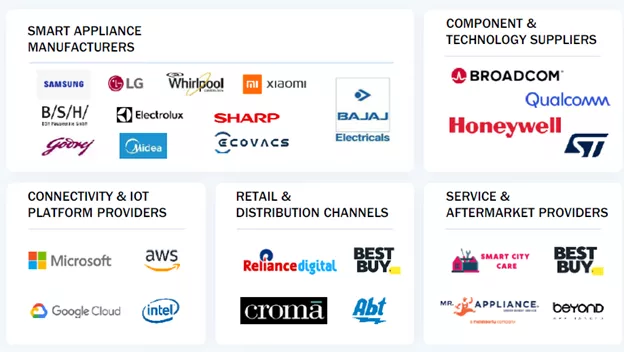The digital twin market is expected to grow from USD 10.1 billion in 2023 to USD 110.1 billion by 2028, at a CAGR of 61.3% during the forecast period.
Digital Twin companies include:
- Microsoft (US),
- Siemens (Germany),
- Amazon (US),
- Dassault Systèmes (France),
- ANSYS (US),
- General Electric (US),
- IBM (US),
- PTC (US),
- SAP (Germany),
- Oracle (US), and
- Robert Bosch (Germany).
Download PDF Brochure:
https://www.marketsandmarkets.com/pdfdownloadNew.asp?id=225269522
Microsoft
Microsoft offers a diverse range of software products and provides support and licensing. They also offer cloud-based services to consumers and businesses. The company is a significant player in the digital twin market and offers its digital twin platform, Azure Digital Twins. Azure Digital Twins allows businesses to model and simulate entire environments in real-time, providing valuable insights into the behavior and optimization of physical assets and systems. It offers developers the tools and APIs needed to build next-generation IoT applications that leverage the power of digital twins. In addition, Microsoft's Azure cloud infrastructure provides a scalable and secure environment for deploying and running digital twins. The integration with other Azure services, such as IoT Hub and data analytics, enhances the capabilities of digital twins and enables advanced analytics and AI-driven insights. Furthermore, Microsoft's extensive customer base and industry partnerships contribute to its strong presence in the digital twin market. Their solutions cater to diverse sectors, including manufacturing, energy, healthcare, and smart cities, addressing specific industry needs and requirements. Additionally, Microsoft invests significant revenue in innovative solutions and holds over 10,000 patents in its Azure portfolio for digital solutions.
Siemens
Siemens is a global technology provider known for its manufacturing, infrastructure, transportation, and healthcare expertise. The company operates through several business segments, such as Digital Industries, Smart Infrastructure, Mobility, and Siemens Healthineers. Siemens is advancing digital twin technology and has developed the Digital Twin Operations (DT Ops) strategy. DT Ops makes digital twins more accessible by adopting a modular approach and combining modeling, simulation, and IT operations to manage the lifecycle of digital twins. Furthermore, the company invests in research and development for various types of digital twins, such as Product Digital Twins for efficient product design, Production Digital Twins for manufacturing and production planning, and Performance Digital Twins for capturing and analyzing operational data. In addition, with extensive experience in IoT, artificial intelligence, machine learning, and other digital software technologies, the company offers a comprehensive solution that complements digital twin deployments. The company has also invested in developing digital twin capabilities specifically for additive manufacturing factories.
What is Digital Twin?
A digital twin is a virtual replica or digital copy of a physical object, process, or system. It serves as a digital counterpart that accurately captures the essential characteristics and behaviors of the real-world entity. Digital twins utilize advanced technologies such as sensors, data analysis, and simulations to collect real-time data from their physical counterparts. This data is then used to create and maintain an up-to-date digital representation that closely resembles the behavior of the actual object or system. The primary purpose of digital twins is to provide valuable insights and drive operational improvements in the business. By analyzing the digital twin, organizations can gain a deeper understanding of how the physical entity will perform, identify opportunities for enhancement, and test different strategies or scenarios before implementing them in the real world. Digital twins find applications in various industries, such as manufacturing, healthcare, transportation, energy, and construction.

No comments:
Post a Comment